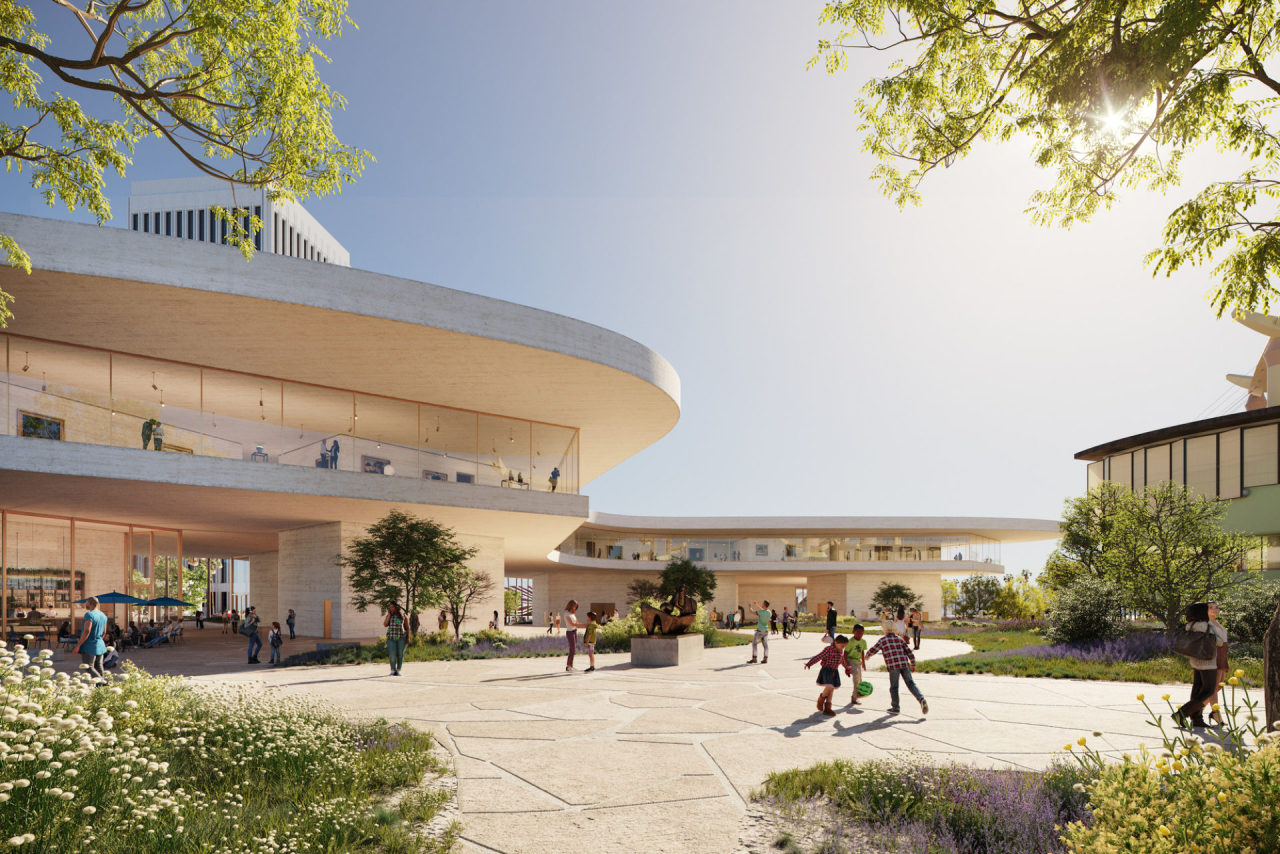Michael Govan is the director of the ever-evolving Los Angeles County Museum of Art, and is in charge of all its aspects, from art programming and collection, to the expanding and upgrading it.
At Herald Design Forum 2019, he will discuss the groundbreaking changes that the LACMA has undertaken and his visions for the art world in the future.
 |
A design rendering of the planned Los Angeles County Museum of Art (Credit Peter Zumthor & Partner/The Boundary) |
The LACMA opened to the public on Wilshire Boulevard in 1965. William Pereira designed the three buildings on its campus, Ahmanson Building, Bing Center and Lytton Gallery. The museum’s fourth structure, Robert O. Anderson Building, which is now the Art of the Americas Building, was added in 1988.
It was in the early 2000s that the museum planned its next phase of development.
In 2001, the museum held a design competition for a major upgrade scheme. Pritzker Prize-winning architect Rem Koolhaas’s plan was announced as the winner, after he proposed to level LACMA’s four central buildings and make it one building under a tent-like roof. However, the museum failed to secure funding for the project estimated to cost hundreds of millions of dollars.
In 2006, Govan was appointed as the new director and CEO of the museum. In 2008, he oversaw the opening of the Contemporary Art Museum, a $50 million building that sits on a 60,000-square-foot land. Two years later, he took charge of the opening of Renzo Piano’s $54 million Lynda and Stewart Resnick Exhibition Pavilion.
While overseeing the expansion plans -- planned before his inauguration -- Govan started to prepare a major upgrade over the next few decades and secured funds for the new construction.
In 2013, LACMA announced Peter Zumthor-designed plans, a $650 million campaign, and finally this year, the county board of supervisors voted to approve it and allotted a $117.5 million budget for the project.
When completed, the new building will increase the museum’s gallery space from 12,000 square meters to a total of 20,000 square meters -- which the director expects will help the museum grow.
By Shim Woo-hyun (
ws@heraldcorp.com)





![[Exclusive] Hyundai Mobis eyes closer ties with BYD](http://res.heraldm.com/phpwas/restmb_idxmake.php?idx=644&simg=/content/image/2024/11/25/20241125050044_0.jpg)
![[Herald Review] 'Gangnam B-Side' combines social realism with masterful suspense, performance](http://res.heraldm.com/phpwas/restmb_idxmake.php?idx=644&simg=/content/image/2024/11/25/20241125050072_0.jpg)

